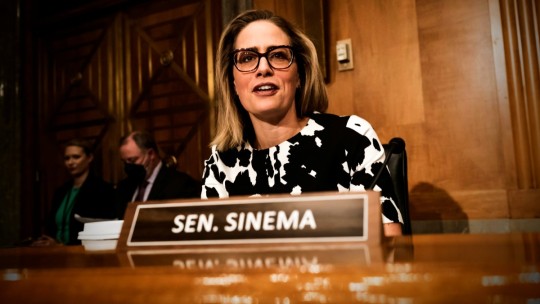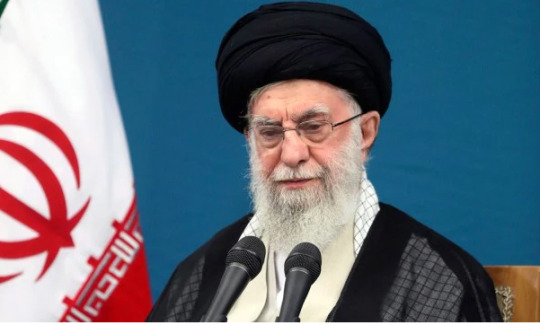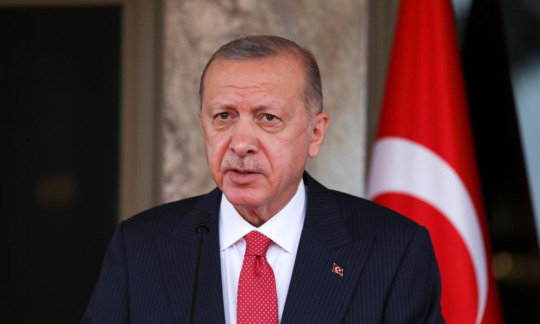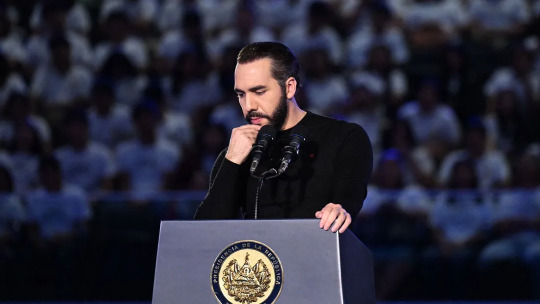#politicaltransition
Explore tagged Tumblr posts
Text
Senator Kyrsten Sinema's Surprise Exit
Explore the pulse of the web with Bing Trending News, where I highlight popular news headlines, that's currently trending.
https://youtu.be/Couc_X8ds0E On December 9, 2022, Kyrsten Sinema, the Senator representing Arizona, made a significant decision to change her party affiliation from Democrat to Independent. This unconventional move has the potential to influence her political image, although it did not create a disturbance within the Democrats’ slim majority in the Senate. As an independent myself, this move…

View On WordPress
#ArizonaPolitics#Election2024#ElectionInsights#IndependentSenator#KariLake#KyrstenSinema#PoliticalAnalysis#PoliticalFuture#PoliticalNews#PoliticalTransition#RubenGallego#SenateExit#SenateRace#SenateSeat#USPolitics
2 notes
·
View notes
Text
Dr. Nowhera Shaik Congratulates Smt. Rekha Gupta on Becoming Delhi's Chief Minister

Introduction
In a momentous occasion for Delhi, Smt. Rekha Gupta has taken the oath as the new Chief Minister of the national capital. Dr. Nowhera Shaik, MD & CEO of Heera Group of Companies, has extended her heartfelt congratulations to the newly appointed leader. This blog post explores the significance of this appointment and the hopes for Delhi's future under Smt. Gupta's leadership.
Smt. Rekha Gupta's Journey to Chief Minister
Smt. Rekha Gupta's ascent to the position of Delhi's Chief Minister is a testament to her dedication and hard work in public service. Her journey is marked by:
Active participation in campus politics
Involvement in state organization
Experience in municipal administration
Service as an MLA (Member of Legislative Assembly)
This diverse background has equipped Smt. Gupta with a comprehensive understanding of the challenges faced by Delhi's citizens at various levels of governance.
Dr. Nowhera Shaik's Message of Congratulations
Dr. Nowhera Shaik, a prominent business leader and philanthropist, has expressed her confidence in Smt. Rekha Gupta's ability to lead Delhi towards progress. In her congratulatory message, Dr. Shaik highlighted:
"Congratulations to Smt. Rekha Gupta Ji on taking oath as Delhi's Chief Minister. She has risen from the grassroots, being active in campus politics, state organisation, municipal administration and now MLA as well as Chief Minister. I am confident she will work for Delhi's development with full vigour. My best wishes to her for a fruitful tenure."
This endorsement from a successful entrepreneur like Dr. Nowhera Shaik underscores the business community's optimism about the new leadership.
Expectations for Delhi's Development
With Smt. Rekha Gupta at the helm, there are high expectations for Delhi's development. Some key areas that may see focus include:
Infrastructure improvement
Education reforms
Healthcare advancements
Environmental initiatives
Economic growth and job creation
Dr. Nowhera Shaik's confidence in Smt. Gupta's ability to work "for Delhi's development with full vigour" reflects the hope shared by many for positive changes in the capital.
The Importance of Grassroots Experience in Leadership
Smt. Rekha Gupta's rise from grassroots politics to the Chief Minister's office is significant. This journey provides several advantages:
Deep understanding of local issues
Strong connection with the public
Practical knowledge of administrative challenges
Ability to bridge gaps between different levels of governance
Dr. Nowhera Shaik's acknowledgment of this aspect in her congratulatory message highlights the value of such experience in effective leadership.
Challenges and Opportunities Ahead
As Smt. Rekha Gupta begins her tenure as Chief Minister, she faces both challenges and opportunities:
Challenges:
Managing the complex urban landscape of Delhi
Addressing environmental concerns, particularly air pollution
Improving public transportation and infrastructure
Enhancing the quality of education and healthcare
Opportunities:
Implementing innovative solutions for urban development
Fostering partnerships between government, businesses, and civil society
Leveraging technology for better governance
Promoting Delhi as a hub for business and culture
Dr. Nowhera Shaik's best wishes for a "fruitful tenure" reflect the hope that Smt. Gupta will successfully navigate these challenges and capitalize on the opportunities.
Conclusion
The appointment of Smt. Rekha Gupta as Delhi's Chief Minister marks a new chapter in the capital's governance. Her diverse experience and grassroots connection, coupled with the support and confidence of business leaders like Dr. Nowhera Shaik, provide a strong foundation for her tenure.
As Delhi looks forward to this new era of leadership, citizens and observers alike will be keenly watching the developments that unfold. With her background and the good wishes of prominent figures like Dr. Nowhera Shaik, Smt. Rekha Gupta is well-positioned to make a significant impact on Delhi's future.
We invite our readers to share their thoughts and expectations for Delhi under the new leadership. What changes would you like to see in the capital? How do you think Smt. Rekha Gupta's grassroots experience will influence her governance? Leave your comments below and join the discussion on Delhi's exciting new chapter.
#drnowhera#heeragroup#rekhagupta#delhicm#indianpolitics#womeninleadership#delhidevelopment#politicaljourney#grassrootspolitics#municipaladministration#stateorganization#mla#oathtaking#delhigovernance#politicaltransition#womenempowerment#indiandemocracy#delhipolitics#urbandevelopment#congratulations
0 notes
Text
The Trump-Russia Controversy: A Modern Manchurian Candidate?
Introduction The political landscape of the United States has been profoundly affected by allegations of foreign interference, particularly concerning Donald Trump’s alleged ties to Russia as detailed in the Mueller Report. This essay seeks to draw parallels between these allegations and the fictional narrative of the “Manchurian Candidate,” a story of manipulation and subversion. By examining…
#AmericanPolitics#ConspiracyTheory#ElectionCollusion#ForeignInterference#Ideology#InternationalRelations#LeadershipPsychology#ManchurianCandidate#MediaNarrative#MuellerReport#NationalSecurity#PoliticalAllegations#PoliticalBetrayal#PoliticalHyperbole#PoliticalManeuvering#PoliticalTransition#PublicPerception#Russia#Speculation#Trump
0 notes
Text
Justin Trudeau Resigns: A Turning Point in Canadian Politics
Justin Trudeau Resigns: A Turning Point in Canadian Politics
Canadian Prime Minister Justin Trudeau has announced his resignation after nearly a decade in power, marking the end of an era shaped by progressive reforms and political controversies. His decision comes amid plummeting approval ratings, with public dissatisfaction fueled by inflation, soaring housing costs, and strained public services.

While his tenure saw achievements like gender parity in cabinet, carbon pricing, and cannabis legalization, it was also marred by scandals and economic challenges. The Liberal Party now faces the task of rebuilding under new leadership, navigating Canada’s pressing issues, and addressing the strong challenge posed by Pierre Poilievre’s Conservatives.
To read the full article, click the link: Full Article
Justin Trudeau Resigns
#JustinTrudeau#CanadianPolitics#PoliticalTransition#Leadership#politicalscience#cuetpg#politicalsciencesolution#ugcnet
0 notes
Text
Iran Faces Leadership Crisis as Supreme Leader Ali Khamenei’s Health Deteriorates

Iran is reportedly facing a leadership crisis as Supreme Leader Ayatollah Ali Khamenei, who has held power since 1989, is said to be suffering from a serious illness. At 85 years old, Khamenei's health issues have raised concerns about the future of Iran’s leadership. Reports suggest that Khamenei may step down from his position and nominate his 55-year-old son, Mojtaba Khamenei, as his successor.
This potential transition comes at a highly sensitive time for Iran, as the country is embroiled in an ongoing conflict with Israel and tensions in the Middle East continue to escalate. A leadership change at the highest level of government during such a volatile period could have profound implications, both within Iran and in its relations with the international community.
As the head of state and commander-in-chief, Khamenei wields significant power in Iran, with control over both political and military affairs. His leadership has been marked by strong resistance to the West, especially Israel, and a focus on maintaining Iran’s ideological stance in the region. If Mojtaba Khamenei succeeds his father, it could signal a shift in Iran’s domestic and foreign policies, further influencing the already tense situation in the Middle East.
0 notes
Text
In a rare show of cautious optimism, citizens nationwide are reportedly relieved that the current “interim government,” a fixture of uncertain authority and indefinite timelines, may actually hand over the reins this time around. After years of cycling through leadership labeled as “temporary” yet seemingly set in stone, residents are marveling at the astonishing possibility of a government that might be interim in more than just name. “When I heard this interim administration was actually going to hand things over, I nearly spat out my coffee,” said Amir Karami, 34, a local shopkeeper and veteran skeptic. “But then I thought, wait—haven’t I heard this exact line before? I remember the last three ‘interim’ governments, all of whom vowed to be out the door the moment the real government arrived. If they had stuck to their word, my son would be learning about them in history class instead of still seeing them on TV!” The nation’s history with “temporary” governance stretches back almost as far as the founding of the country itself, with leaders frequently adopting titles like “caretaker,” “provisional,” and “acting” as if these euphemisms could calm a populace wary of power grabs. Citizens were promised swift transitions to elected administrations, only to find themselves listening to decade-long “interim” budget speeches, all introduced with the favorite refrain, “just until things stabilize.” In fact, many residents can trace personal milestones alongside various "transitional" regimes. "I celebrated my high school graduation under an interim president," recalls Zainab Hashimi, 27. "Then my college graduation—same interim president. He even sent a note to my wedding! It’s like they’re the furniture; you can’t imagine the place without them." Skepticism reached a fever pitch during the last “temporary” government’s term, which was supposed to last six months but stretched to six years. To keep up appearances, the administration occasionally rolled out the “new head of government” (usually a senior official promoted from a different department), giving a fresh face to a role that had clearly taken up permanent residence. “Nothing says ‘transition’ like recycling the same old leadership, shuffled into slightly different titles every few years,” said Hadi El-Khalil, 42, a frustrated public policy professor. “There’s only so many times you can replace ‘Acting Deputy Interim’ with ‘Interim Deputy Acting’ before the public catches on.” Adding to the comedy, members of this current interim administration have been on a “farewell tour” across the country, shaking hands, kissing babies, and somberly “preparing” the public for their departure, all while tacitly refusing to put an actual date on that departure. One press conference ran over an hour as the interim prime minister explained, in meticulous detail, that they were fully prepared to leave “any day now—just as soon as all paperwork is finalized, the office plants have been watered, and a respectable number of exit selfies have been posted online.” Yet, this time, the public has dared to hope. There is something in the tone of government officials that seems to suggest they actually, maybe, might, sort of be serious about stepping down. “It’s a new feeling, this glimmer of hope,” said Ali Mansour, a longtime critic and local barber. “People are genuinely thrilled at the idea that someone else could be taking charge, though I think the excitement is less about the new government and more about finally seeing the old one hit the road.” Still, wary citizens remain on guard, having been duped before. To help ease lingering doubts, a government official suggested that citizens “think of us like an Airbnb host.” He went on to say, “We were just keeping the lights on until the main guests arrived. We’re definitely moving out as soon as we hand over the keys—give or take a few days for cleaning fees.” The government’s dedication to the transition is reportedly so intense that interim
leaders have started holding “transition training workshops,” helping newer members learn the fine art of convincing the public that everything is moving along. “We want people to know that we’re fully committed to this transition, and that we mean it this time,” said one interim cabinet member. “We’ve even considered packing up a box or two. Symbolic, of course. But meaningful.” Despite the air of officiality, many fear the entire thing might still be an elaborate ruse to keep the interim team in place until another group of “temporary” officials are ready to take over. Rumors swirl of cabinet members who have pre-booked lunches for the next fiscal year and hints that “former interim advisors” might still keep office desks “just in case.” For now, citizens have tried to be cautiously optimistic, while still hedging their bets. Street vendors have started selling T-shirts that read, “I Survived the Last Interim Government (So Far),” and “We’ll Believe It When We See It.” Crowds have even gathered in public squares, chanting, “Let them go! Let them go!” before quickly muttering, “But, you know, no pressure.” As the handover date approaches, citizens are once again clinging to faint hopes that they might actually witness a government transition in real time. Of course, the promise of a smooth handover has been made before, and this administration has been surprisingly good at dragging things out. However, this time around, officials assure the public it’s different. “Believe us,” said the interim prime minister in a closing statement. “This time, we’re really just… passing through.” And as the crowd filed out, many were already drafting bumper stickers with a new national slogan: “Fool me once, shame on you; fool me seven times, well…welcome back.”
0 notes
Text
What Impact Has Erdogan Had On Turkey's Democratic Institutions?

The story of Turkey's democratic institutions is one marked by periods of progress and moments of tension.
Recep Tayyip Erdogan, who has been a dominant figure in Turkish politics for over two decades, has played a pivotal role in shaping the country's democratic landscape.
In this blog, we will explore the multifaceted impact Erdogan has had on Turkey's democratic institutions, examining both the advancements and the challenges they have faced under his leadership.
Early Promise of Reform
When Erdogan's Justice and Development Party (AKP) first came to power in 2002, it brought with it a sense of optimism for democratic reforms.
The AKP positioned itself as a moderate Islamist party with a pro-European Union stance, promising greater civil liberties and political openness.
In the early years, Turkey made significant strides in democratization, including constitutional changes and a more open public discourse.
Constitutional Reforms
One of the most significant impacts of Erdogan's tenure has been the constitutional reforms that took place during his leadership.
In 2010, a referendum approved a series of changes aimed at democratizing the constitution.
However, as time went on, some critics argued that these changes actually concentrated more power in the executive branch, including the presidency, and weakened checks and balances.
Erosion of Civil Liberties
Erdogan's presidency has been marked by increasing concerns about the erosion of civil liberties.
Critics point to a growing intolerance for dissent, restrictions on freedom of speech, and the suppression of independent media.
High-profile cases involving journalists and academics have drawn international attention and raised questions about the state of free expression in Turkey.
Crackdown on Opposition
Another contentious issue is the government's crackdown on political opposition.
Erdogan's administration has taken legal actions against various political opponents, including the detention and imprisonment of political figures, such as the pro-Kurdish Peoples' Democratic Party (HDP) members.
These actions have raised concerns about the fairness and impartiality of the justice system.
State of Emergency and Executive Powers
In the aftermath of the failed coup attempt in 2016, Turkey declared a state of emergency, which lasted for two years.
During this period, there were widespread arrests and dismissals of individuals accused of being linked to the coup.
While there was a need to address the coup attempt, critics argue that the state of emergency led to an overreach of executive powers and human rights abuses.
Shift Towards a Presidential System
Perhaps the most significant change to Turkey's democratic institutions during Erdogan's presidency has been the shift towards a presidential system.
In a 2017 referendum, voters narrowly approved constitutional changes that expanded the powers of the presidency.
This transformation has centralized authority and changed the balance of power within the government.
Challenges to the Independence of the Judiciary
Concerns have also been raised about the independence of the judiciary in Turkey.
Critics argue that the government has exerted influence over the judiciary through appointments and removals, potentially compromising its ability to serve as an impartial check on government actions.
Conclusion
The impact of Recep Tayyip Erdogan on Turkey's democratic institutions is complex and multifaceted.
While his early years in power were marked by promises of reform and democratization, his tenure has also seen a series of challenges to democratic norms and institutions.
The concentration of power in the executive branch, erosion of civil liberties, and a crackdown on political opposition have raised concerns both domestically and internationally.
Turkey's democratic journey continues to evolve under Erdogan's leadership, and the debate over the state of democracy in the country remains a topic of intense discussion.
As Turkey navigates its path forward, it faces the challenge of reconciling the principles of democracy with the realities of its political landscape, making it a critical issue to watch in the years to come.
#ErdoganEffect#TurkeyDemocracy#DemocraticInstitutions#PoliticalTransition#TurkishPolitics#DemocracyChallenges#ErdoganEra#RuleOfLaw#CivilRights#DemocraticValues
0 notes
Text
El Salvador’s Authoritarian Turn Under Bukele: Security Triumph or Democratic Breakdown?
Short Summary:
El Salvador’s President Nayib Bukele has drastically reduced crime through mass arrests and a harsh crackdown on gangs, gaining immense public support. However, critics warn that his methods — such as suspending civil liberties, packing courts, intimidating the press, and detaining activists — are eroding democracy and turning the country into an authoritarian state. While many citizens feel safer, concerns are rising about the long-term cost to human rights and democratic freedoms.
Read More-Click Here

El Salvador’s Nayib Bukele delivers a speech to high school students at the Adolfo Pineda National Gymnasium in San Salvador

Soldiers patrol a neighborhood in San Marcos, El Salvador, in an armored vehicle on October 28, 2024, after Nayib Bukele announced the deployment of security forces to search gang remnants.
#ElSalvador#Bukele#Authoritarianism#DemocraticBreakdown#SecurityTriumph#PoliticalSituation#CentralAmericaPolitics#HumanRights#CivilLiberties#ConstitutionalCrisis#LegislativeOverreach#PresidentialPowers#DemocracyDecline#PoliticalControversy#SecurityPriorities#HumanRightsViolations#InternationalRelations#LatinoAmerican Politics#CentralAmerica#PoliticalTransitions#DemocraticStability
0 notes